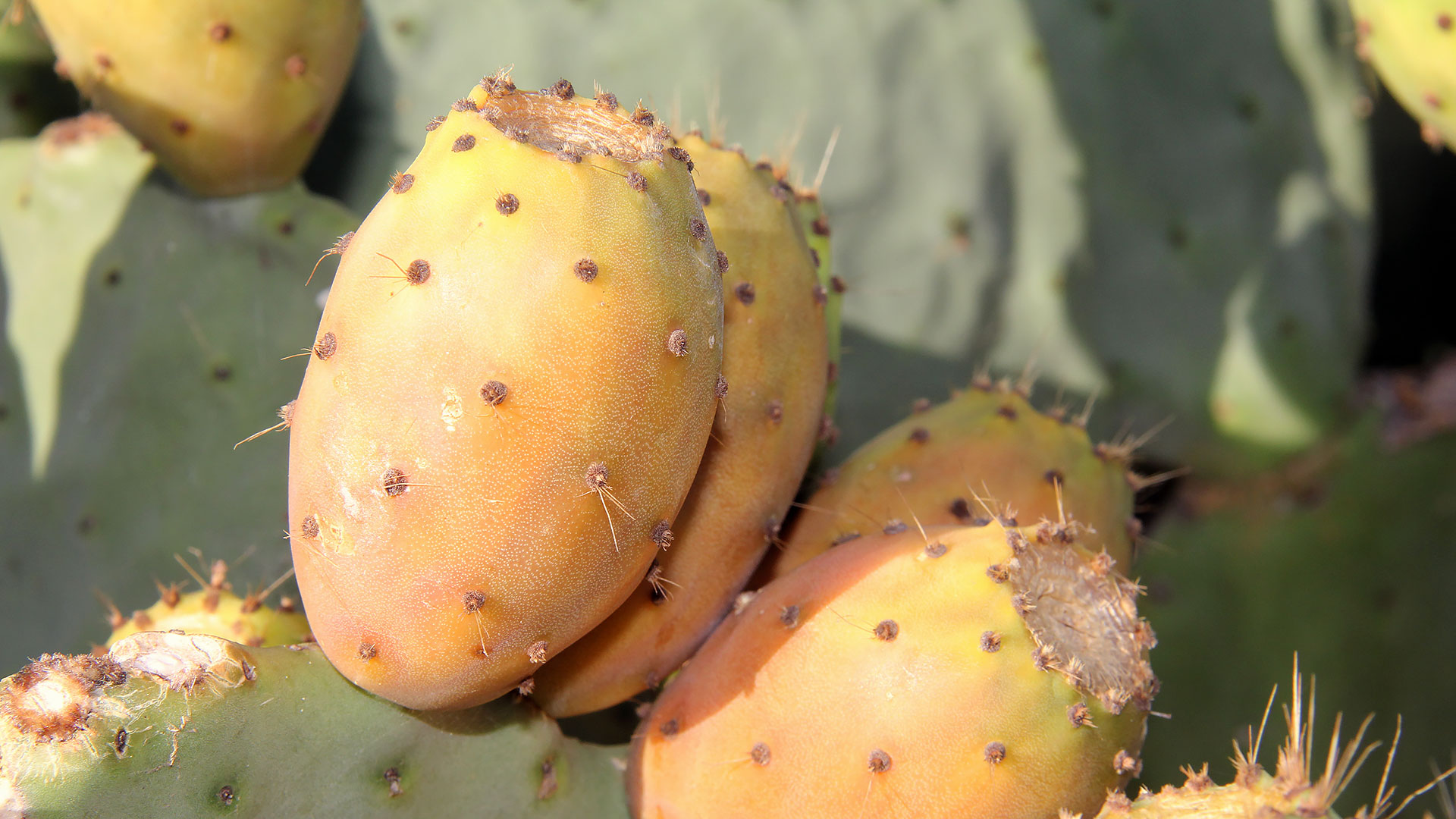In 2015 we planted the first 6ha (15.8ac) of prickly pear cactuses and today we have 20ha (49.4ac) divided between orange and red varieties.
The prickly pear is a tropical or subtropical plant that, due to its ability to produce biomass, can grow and survive in very adverse weather conditions.
The Alentejo, because of its favourable terrain and climate conditions, has excellent conditions for the production of high quality and unique flavour prickly pears. An important part of our success can also be granted to the specific characteristics of the soil on our estates, the gravity irrigation system that we have implemented, the fertilisation at the right time and the surgical pruning that gives strength and vigour to our plants and calibre, brix and quality to our fruit.
At harvest time, usually in August and September, our orchards are an explosion of colours and fragrances that perfume the warm summer nights, whose silence is only broken by the group of men that, every night, with the same pace and wisdom, harvests the fruit and transports it to the warehouse. This is where, at sunrise, another team arrives to make a careful selection of the fruit, remove the cladodes (known as thorns) and then carry out the packaging.
NIGHT PICKING
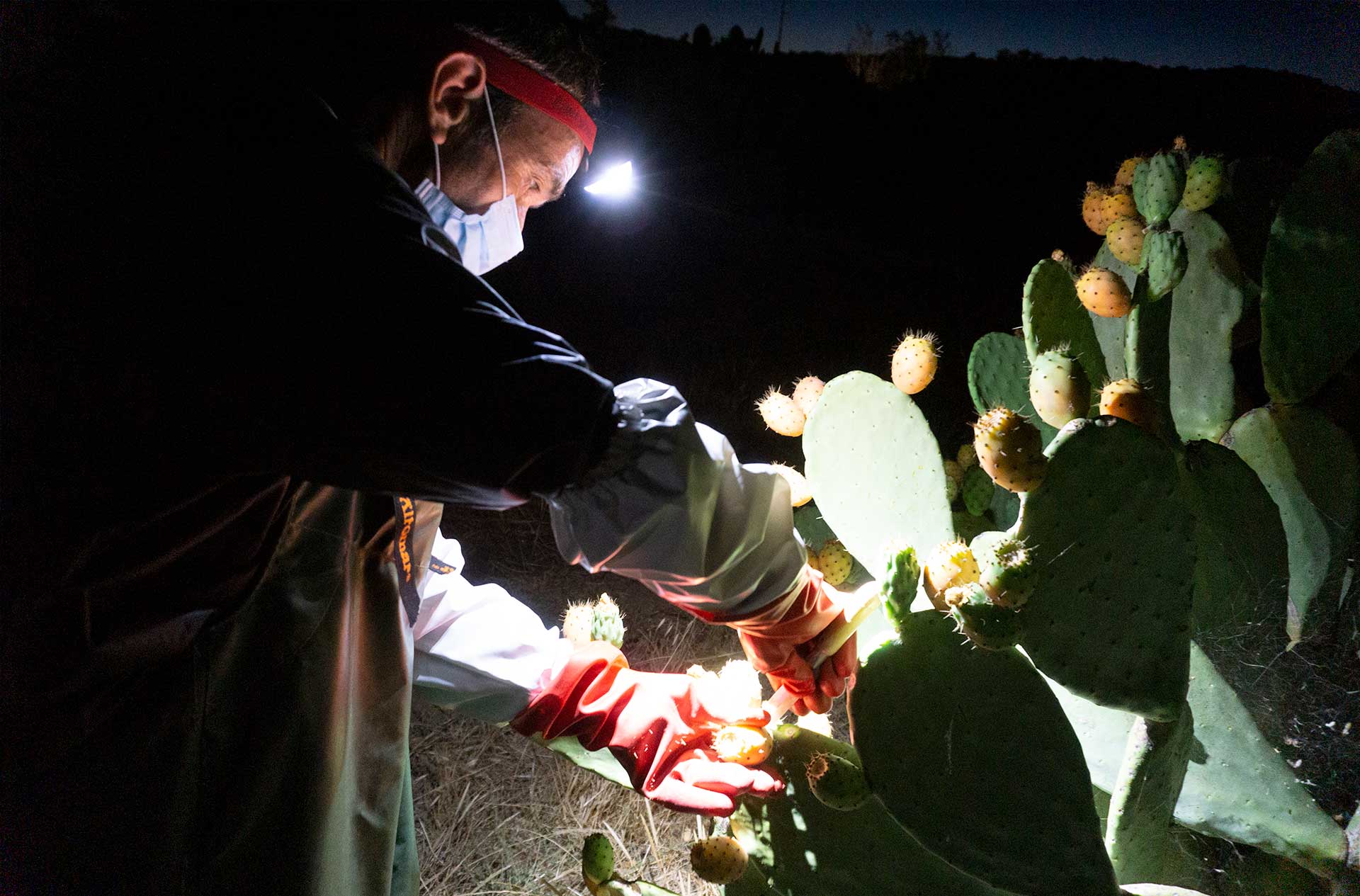
DAYTIME FRUIT COLLECTION
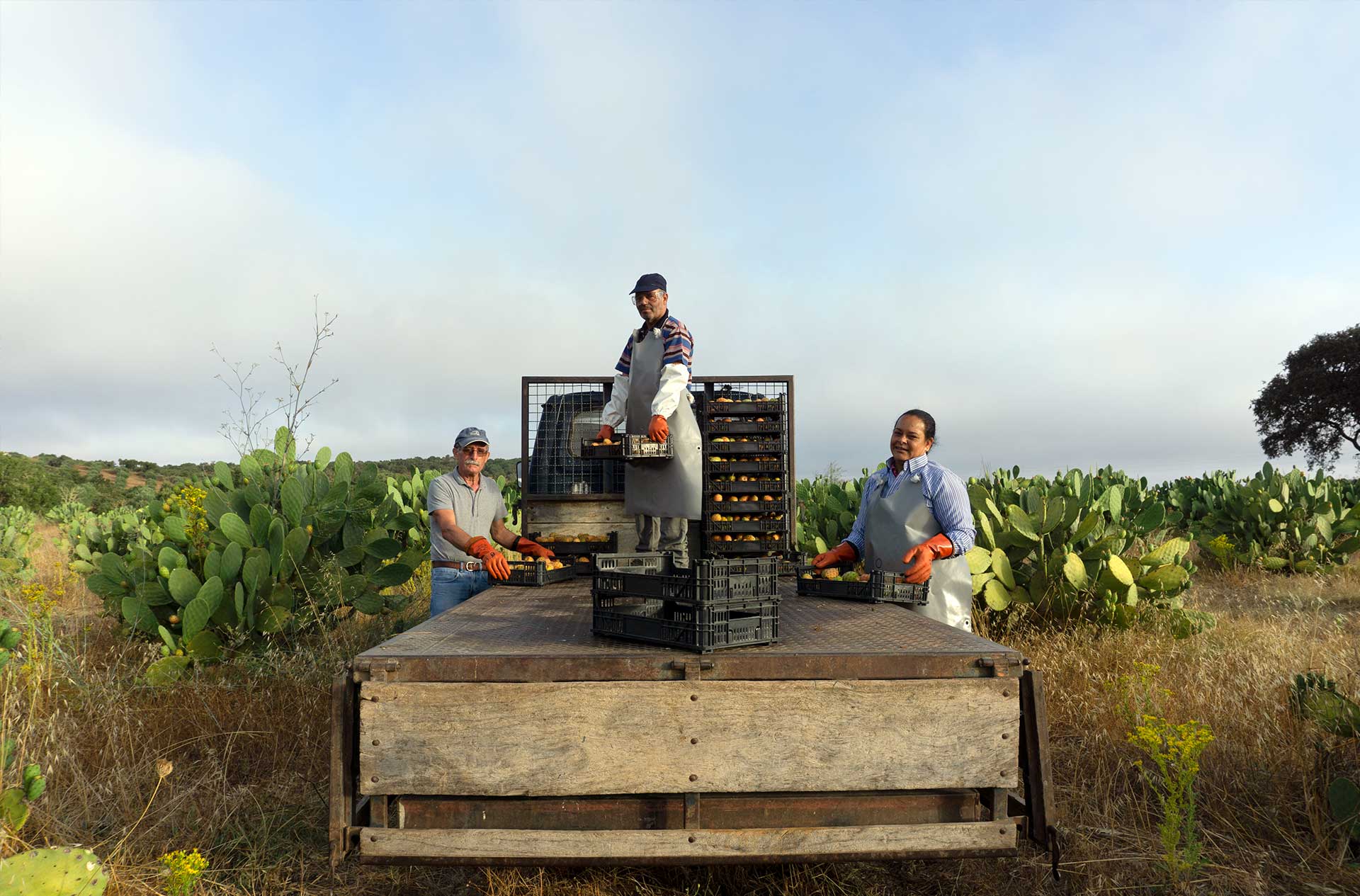
EMBALAMENTO
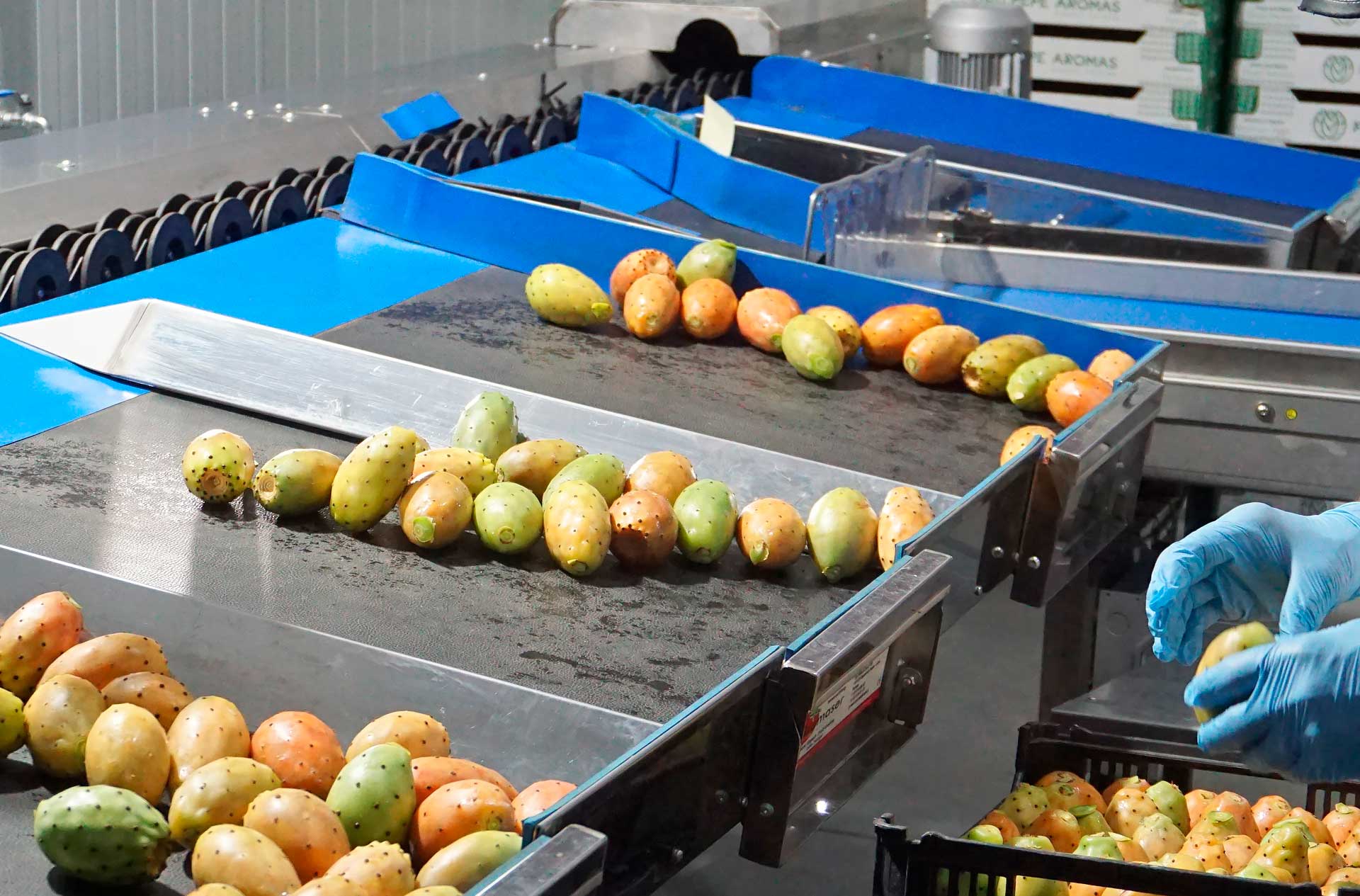
The prickly pear, in the orange or red varieties, is marketed in bulk or in gourmet packaging during the months between August and October.
Pepe Aromas sells fruit for fresh consumption in sizes over 100gr (3.5oz) and for processing – pastry, confectionery, ice cream and juices – in sizes under 100gr.
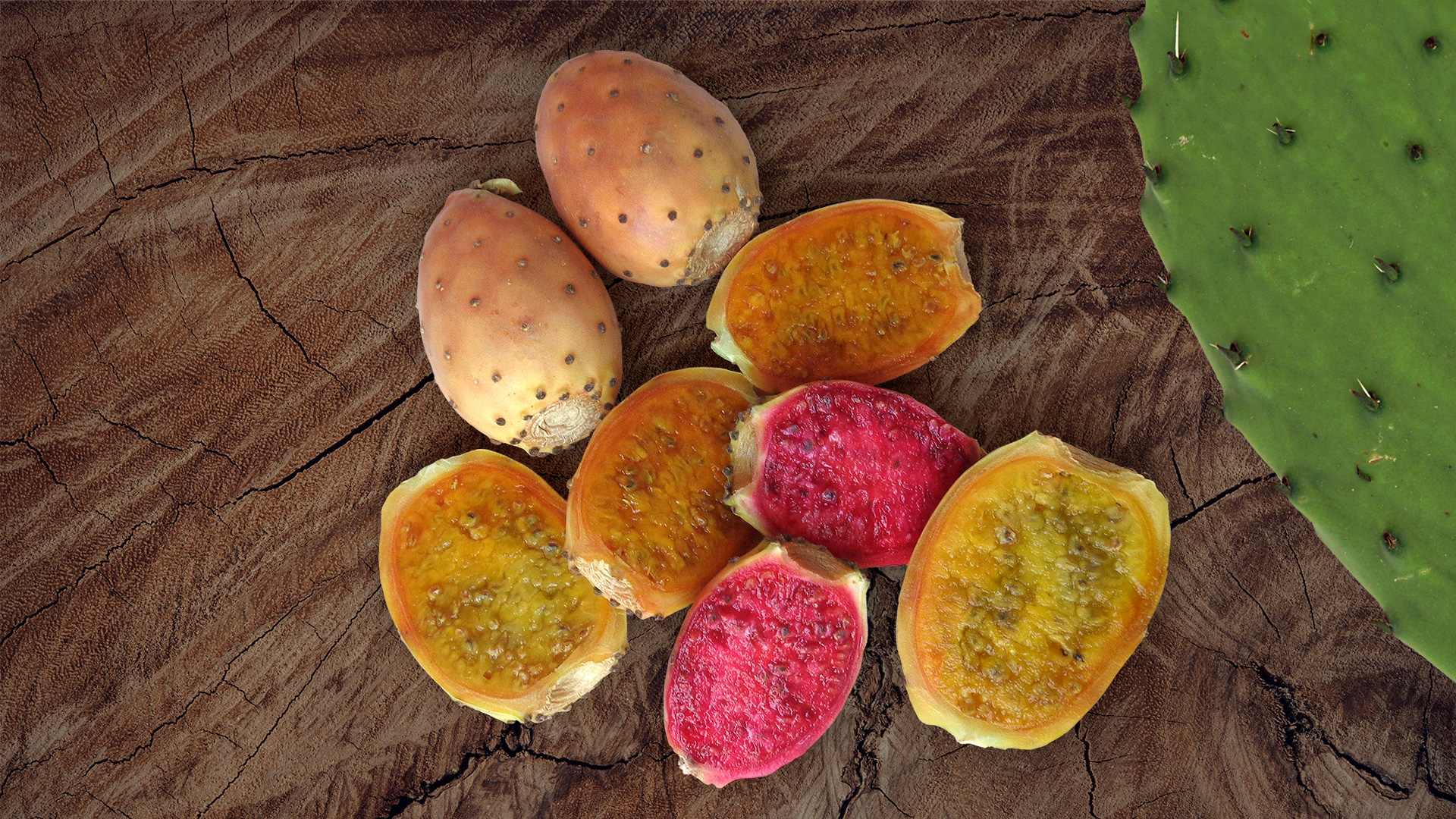
ZERO WASTE CULTURE
The production of prickly pears is highly sustainable because, other than being perfectly adapted to our soil and climate, it is not very demanding from a hydric perspective and we can fully utilise it. The fruit is used for fresh consumption; juices; pulp production; frozen, fermented or dehydrated products. Palms are used for cooking, flours or fodder. As for the flowers, they are great for infusions. Finally, seeds are excellent for the production of a rare and valuable vegetable oil much appreciated by the pharmaceutical and cosmetic industries.
ON THE PATH TO CIRCULAR ECONOMY
“Never doubt that a small group of thoughtful, committed, citizens can change the world. Indeed, it is the only thing that ever has.”
Margaret Mead
We believe and we support, whenever possible, the implementation of the principles of circular economy because we consider that it is necessary to convert our waste and residual materials into a "resource" that can be reused as a "new" raw material in our company (or others').
PEPE AROMAS ALREADY:
• Reuses fruit cleaning water for orchard irrigation;
• Sells the palms from the pruning to livestock for fodder;
• Uses non-compliant fruit unfit for sale while fresh or processed to fertilise the soil or feed farm animals.
There is still a long way to go but only through permanent regeneration, remanufacture and shared economy can responsible businesses and self-sustaining economies be effectively built!

